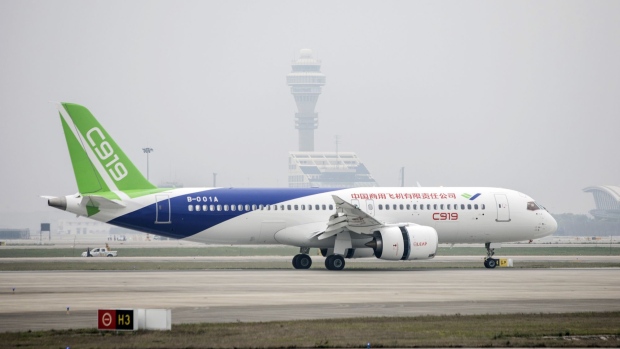Dec 9, 2022
Your Saturday Asia Briefing: Time for Expansion
, Bloomberg News

(Bloomberg) -- If the pandemic magnified inequity in the world, the recovery seems to be making things worse. From China’s surprising Covid turnaround, to the beaches of Thailand and the price of fish in Japan, this weekend we look at the different ways Asian governments and companies are stumbling into the last weeks of 2022.
China’s residents have been stunned by the rapid withdrawal of the government’s long-vaunted Covid Zero strategy. Markets are celebrating, state media are backtracking and citizens are puzzled. So what exactly is China doing and why does it matter? Here are all your questions answered, including the big one: Could China’s shift in policy spawn a new Covid variant?
Outside of China, travel is back on the agenda in a big way as the holiday season approaches. Thailand will welcome today the nation’s 10 millionth foreign tourist of 2022, reaching its target for the year three weeks early as Asia’s vast tourism industry grinds back into business. According to airline tycoon Tony Fernandes, “it’s time for expansion” as the global travel recovery is set to push up airfares even higher in 2023.
Some tourists have even bigger ambitions. Irrepressible Japanese billionaire Yusaku Maezawa has announced the passenger list for the first private SpaceX flight around the moon. Here’s who gets to go.
For Asia’s planemakers, it has also been a marquee week, with Japan teaming up with the UK and Italy to produce a next-generation fighter jet, and China’s fledgling airliner maker Comac delivering its first C919 passenger jet. After 14 years of planning, testing and missed deadlines, this is how the new arrival compares with rival planes from Airbus and Boeing.
China’s debut in the commercial jet market comes as governments are tightening regulations on big emitters of greenhouse gases. Still, while aviation is a major culprit, one part of the global economy is far worse. From farm to fork, our food system generates almost a third of greenhouse gas emissions, so governments from the Netherlands to New Zealand are starting to clamp down with new environmental goals that could put many farms out of business. But farmers are not going down without a fight.
It’s not all planes and spaceships lifting the transport recovery. Asia’s auto industry continues to make strides as the sector pivots to electric vehicles. There are almost 350,000 fast chargers for electric cars in China, compared with fewer than 25,000 in the US, and for one Asian company, that smells like an opportunity.
While markets may be anticipating a strong year ahead, the recovery in Asia is far from even. It’s been a rough year for Pakistan, for example, with lethal floods, mass protests, debilitating debt and a slumping currency. As always, when a developing economy becomes a train wreck, people turn to the currency of last resort: the US dollar. But where to get those coveted greenbacks? Here’s a textbook lesson in black market economics.
Nor is it only emerging markets that are struggling to adapt as 2022 winds down. Japan’s continued reluctance to join the rate-hike spree belies a level of inflation that is seeping pain unevenly through supply chains, as this tale of tuna tells.
And finally, Argentina will beat England in the World Cup final. That’s the prediction anyway of one analyst who got the tournament victors right in 2014 and 2018. After the shock defeat of favorites Brazil, and as bosses fret about whether they should let their staff watch the games at work, let’s see if he’s right.
Have a surprising weekend.
©2022 Bloomberg L.P.

